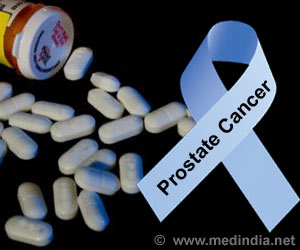140 regions of scrambled genetic code believed to contain many undiscovered cancer genes identified by a team led by scientists at Dana-Farber Cancer Institute and the Broad Institute.

The authors said it is the largest analysis to date of the role of DNA "copy number alterations" across several types of cancer. Normal cells carry two copies of the 20,000 genes that make up the genome. The genomes of cancer cells typically are riddled with areas where genetic sequences are duplicated or deleted; in fact, copy number alterations affect more of the genome than any other DNA abnormality in cancer. The study's goal was to identify patterns of copy number alterations and determine how they promote cancer.
In the survey of 4,934 cancers of 11 types, "we found that cancers often undergo doubling of the entire genomes, followed by large numbers of smaller copy number alteration events," said Rameen Beroukhim, MD, PhD, assistant professor of Medicine at Dana-Farber and an associate member of the Broad Institute. "We also saw a propensity of copy number changes to occur at telomeres [the tips of chromosomes] and they exhibit features indicating they arise from different mechanisms than copy number changes of regions within chromosomes."
Beroukhim is co-senior author of the report along with Matthew Meyerson, MD, PhD, of Dana-Farber and the Broad, and Gad Getz, PhD, of Massachusetts General Hospital and the Broad.
The analysis also revealed 70 regions of the cancer genome that undergo duplications –also known as amplifications – more often than would be expected by chance and 70 regions that contain deletions more often than would be expected by chance. "We expect these 140 regions to contain a number of as-yet unknown oncogenes and tumor suppressor genes," Beroukhim said.
On average, these 140 regions included three to four genes. However, only 35 of the regions contained known oncogenes or tumor suppressor genes previously linked to cancer. "So there is a lot left to discover in the cancer genome," Beroukhim said. "These regions provide the research community a starting point to evaluate possible novel oncogenes and tumor suppressor genes." The results have been made available in a publicly accessible website, http://www.broadinstitute.org/tcga.
Advertisement
Source-Eurekalert















